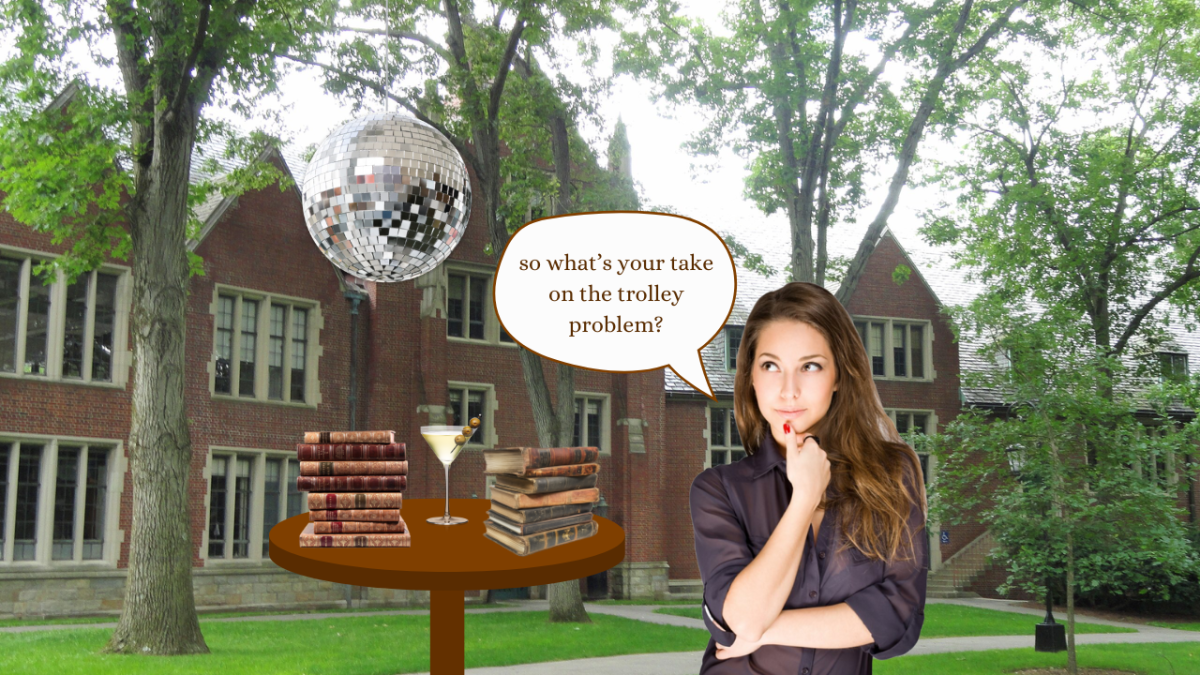After a thorough review of its own budget, the Student Organization and Appointments Committee (SOAC) applied to itself for funding and promptly got denied. A college government committee responsible for funding student organizations, SOAC spends most of its time taunting various on-campus organizations by giving them only enough money to buy snacks and advertise on campus. Additional funds are habitually refused unless the organization goes through an obstacle course comprised largely of denied appeals.
In the middle of the semester, SOAC remembered that its duties involved more than just making sure students have a steady supply of free food.
“Yes, it’s been proven that Wellesley students literally go insane when denied free food,” explained assistant treasurer Houda Hud ’14. Hud and the rest of SOAC were concerned when another study revealed a correlation between restraining orders at MIT and Wellesley students without anything to do. “We realized we needed to make sure students actually have something to do. But to do that we needed more money. So using the a propos clause in our rulebook, we applied to the best place to get more funding—ourselves.”
Unfortunately for SOAC, the rulebook contains many other clauses that make it difficult to get funding. The quid pro quo clause states, “Do not make any part of the process easy. No organizations will get funding unless their Treasurer (or the poor soul doing the Treasurer’s work) cries at least once.”
“SOAC cannot give SOAC any more funding,” said SOAC Treasurer Hanna Han ’13 in an official statement released Monday. “SOAC may appeal to SOAC, but SOAC must jump through SOAC’s hoops to set up a meeting with SOAC.” The decision announced in an official statement follows the College Government a puellas clause that mandates, “Take yourself so seriously that it sometimes hurts to smile.”
Astrology major Lena Lenn ’15, the SOAC appointment coordinator, is infamous for breaking the a puellae clause. “There are shortcuts—hey! I’m technically an astronomy major, but you make your major work for you, you know?” said Lenn. “I’m probably not supposed to tell you this, but there are shortcuts for getting things done.”
The cave canem clause outlines the route most campus organization treasurers and presidents follow. The cavete draco clause explains how to take a shortcut as follows: 1) re-appeal 2) appeasement 3) un-appeasement 4) re-appeasement 5) un-Unitarian-antidisestablishmentarianism 6) bribe with ice cream.
According to Lenn, the real reason for the SOAC funding crisis that incited the appeal, besides March being a “bad luck month written in the stars,” is that young alumnae need funds to pursue their nontraditional passions while trying to find traditional jobs. “Everyone knew SOAC was the best place to go, so the alums bribed us with unlimited ice cream on campus. This bribe is known to everyone else simply as the ‘Ice Cream Fund.’”
When asked if the bribe conformed to the Honor Code, Lenn ran away yelling, “I’ve said too much. Oh stars! Will this bad luck month ever end?”
No SOAC members have the resources to come up with anything more appealing than free ice cream. Because they are unable to bribe themselves, they have to follow the cave canem clause.
At press time, SOAC’s appeal to itself for funding went through, but it granted itself only a sixteenth of what it needs to provide funding for all campus organizations.



